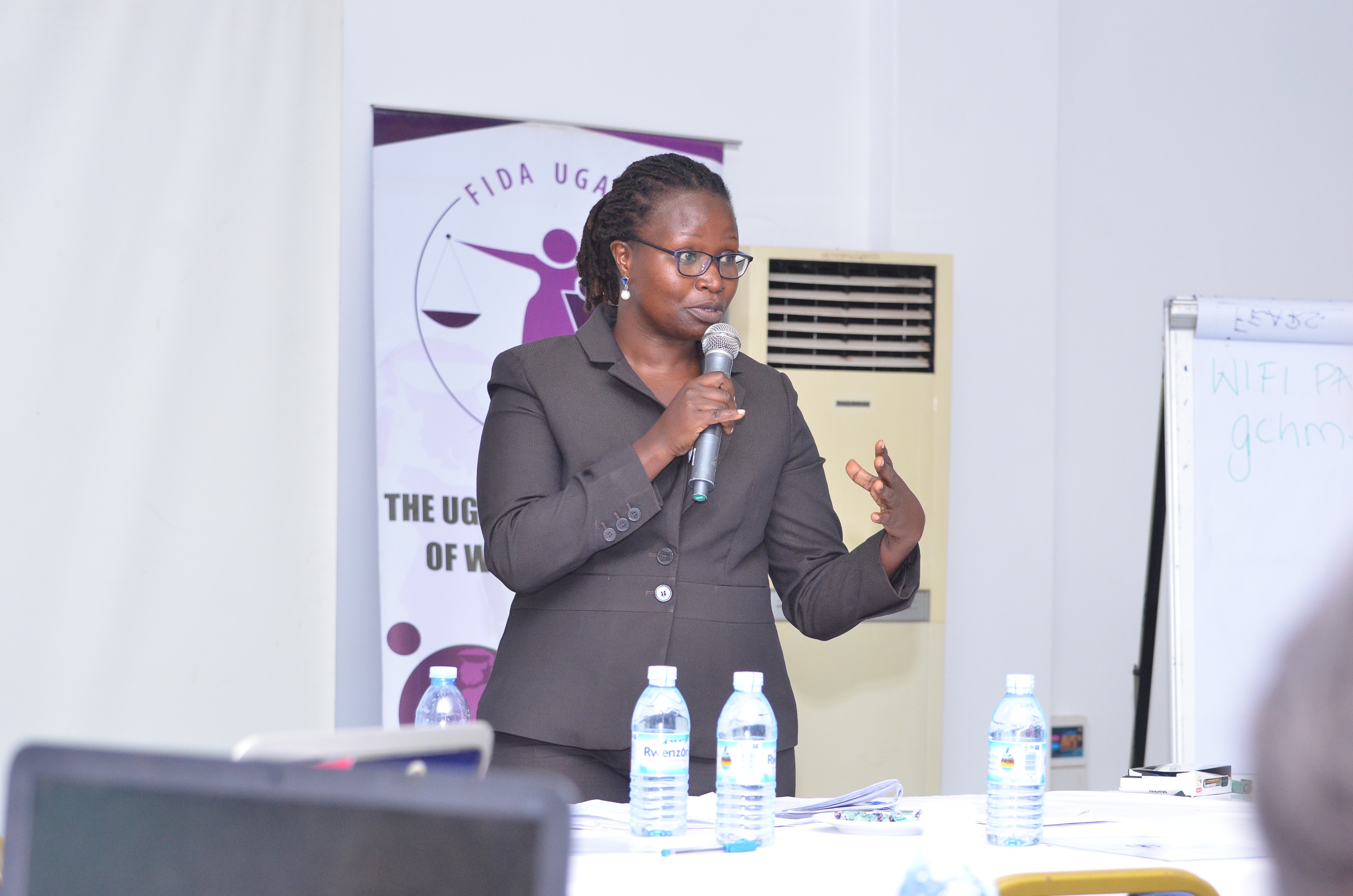The government of Uganda has been urged to commit to the domestication of the Maputo Protocol with women’s rights still habitually marginalised in the context of human rights.
The call to action was made on Thursday by city lawyer Robinah Kyamuhangire during the Uganda Association of Women Lawyers (FIDA) maiden awareness stakeholders’ workshop of 2017 at Metropole Hotel in Kampala under the theme: “Implementing the Maputo Protocol in Practice: Invoking the critical role of Lawyers as a duty under Women Peace and Security (WPS) and the Responsibility to Protect.”
Mrs Kyamuhangire spoke of Uganda’s need for a marathon debate to unanimously implement a Government Motion on the African Union Protocol to the African Charter on Human and Peoples’ Rights on the Rights of Women in Africa, dated 11th July, 2003.
She said this must be done if women should form an integral part of all development efforts in the country.
“The government of Uganda, the 10th Parliament and human rights mechanisms should support this endeavor so that women are able to access justice, education and gender equality,” said Mrs Kyamuhangire, a representative of Namara Tumwine & Co. Advocates Kampala in top legal matters.
During the workshop, the female lawyers deliberated on the need to create awareness of the Maputo Protocol in order to create a formidable ground for demonstration and change of mindset in regards to ritual sacrifice being related to African culture, customary marriages, women’s right to land ownership and inheritance.
Also among the facilitators was Ms Lina Zradriga, the secretary of the Uganda National Committee for the Prevention of Punishment and Genocide and Mass Atrocity Crimes (UNCPGMA)
Ms Zradiga went ahead and enumerated some of the benefits relating to women’s rights and empowerment such as education, non-discrimination, violence, access to justice, participation in all levels of governance, marriages, abortion, property rights amongst others which are complementary to Uganda’s existing laws.

She said that 36 years ago, the African Charter on Human and Peoples Rights failed to cater for women’s rights; thus the need for the Maputo Protocol.
Counsel Annet Koote also said: “People should know that ritual murders of children are not part of our culture despite being often interlinked. This is one of the main reasons why we need the Maputo Protocol to be domesticated in Uganda to protect women and children.”
“The issue of matrimonial property is a serious issue. We need a law that has a section or a clause that stipulates what, when and how matrimonial property is classified and shared in case of a divorce,” noted Her Worship Stella Maris Amabius, a senior magistrate at Mengo Grade One Court.
She added: “First, women rights and empowerment of women should be regarded as inseparable from broader human rights for all peoples. Second, the government, civil society and youths and general population need to be sensitized on human rights issues for a better understanding of international human rights mechanisms.

“Third, increased awareness, promotion and protection of the rights of women should be regarded as non-negotiable.”
Opposition to Maputo Protocol
The Maputo Protocol, guarantees comprehensive rights to women including the right to take part in the political process, to social and political equality with men, improved autonomy in their reproductive health decisions, and an end to female genital mutilation.
There are two particularly contentious factors driving opposition to the Protocol: its article on reproductive health, which is opposed mainly by Catholics and other Christians, and its articles on female genital mutilation, polygamous marriage and other traditional practices, which are opposed mainly by Muslims.
The powerful Joint Christian Council has opposed efforts to domesticate the treaty on the grounds that Article 14, in guaranteeing abortion “in cases of sexual assault, rape, incest, and where the continued pregnancy endangers the mental and physical health of the mother or the life of the mother or the foetus,” is incompatible with traditional Christian morality. In an open letter to the government and people of Uganda in January 2006, the Catholic Bishops’ Conference of Uganda set out their opposition to the ratification of the Maputo Protocol. It was nevertheless ratified on 22 July 2010.



Author: stephenmuneza@gmail.com, +256772544870 or Twitter @stephenkmuneza











